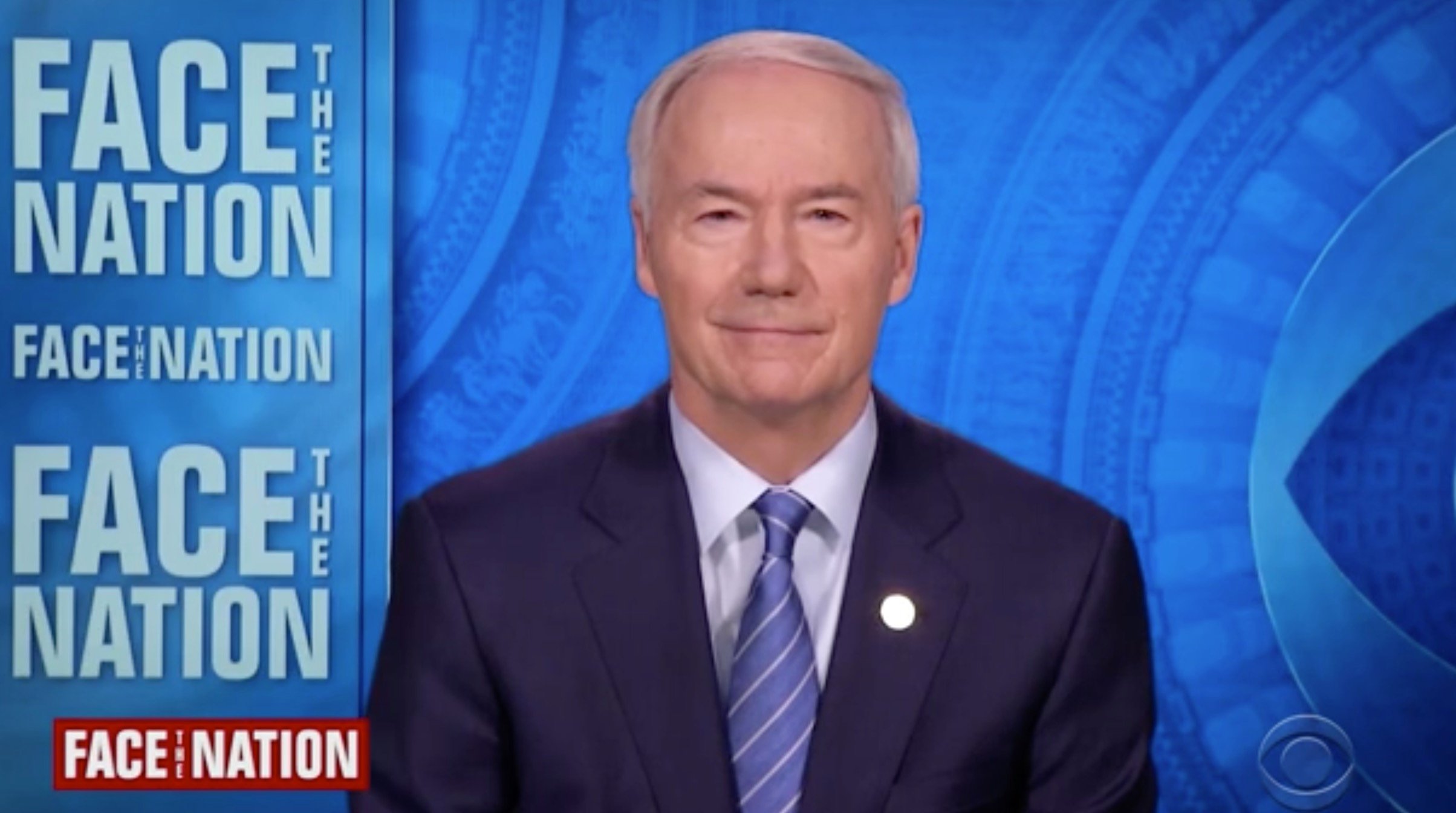
Screen capture / CBS’s Face the Nation
“We’ve got to do better.”
That was the position of Arkansas Governor Asa Hutchinson, speaking with Margret Brennan on CBS’s Face the Nation on Sunday, on the state and federal rollout of the COVID-19 vaccine thus far since it was approved late last year.
Brennan asked Hutchinson about the challenges the state faces distributing the vaccine, pointing out data indicating Arkansas has distributed around a third of the vaccine it has received from the federal government so far.
“One of the challenges is that we have a limited supply,” Hutchinson said in the interview, that aired Sunday morning. “And when you have a limited supply, that means you’ve got to prioritize and you’ve got to make sure you’re giving it to those with the greatest needs, or those of the greatest risk. And that’s a challenge in and of itself.”
Hutchinson said that reluctance by some to take the vaccine, and obtaining consent from those living in long-term care facilities has also slowed the process.
“But even with that, we have to do better,” he said. “We have to act with a sense of urgency and we can do that. We have to learn whenever you’re in a battle that you have to adjust to the circumstances of that battle.”
Accountability, it seems, is part of the process to improving the situation.
The @ADHPIO will add stats on vaccine doses received and shots given to its website. We are still in the early stages of vaccine distribution and now the public can monitor progress.
— Gov. Asa Hutchinson (@AsaHutchinson) January 3, 2021
Hutchinson also on Sunday announced that the state’s health department will begin tracking and reporting numbers on those that have received the vaccine in the state.
“The (Arkansas Department of Health) will add stats on vaccine doses received and shots given to its website. We are still in the early stages of vaccine distribution and now the public can monitor progress.” he posted on Twitter Sunday afternoon.
Hutchinson also said personnel resources to distribute the vaccine has been a challenge.
“We have to utilize our pharmacies because they have the capability and relationships to get it out,” Hutchinson told Brennan on Sunday. “But we’re going to have to look more broadly at how to utilize more resources, whether it is utilizing medical personnel that’s already strained in terms of our National Guard, whether it is bringing on pharmaceutical students that can do more in terms of giving these vaccinations out. We’ve got to increase the capacity of our human resources.”
The state announced last month it would take a phased approach to vaccinating residents. Phase 1-A, which is now underway would vaccinate the state’s health care workers beginning with those at highest risk of exposure to the virus, along with first responders, and long-term care residents and staff.
The next phase, 1-B, would include essential workers including day care workers, workers in K-12 and Higher Education, food industry (meat packing and grocery), correctional workers, utilities, truck drivers, and essential government and infrastructure workers.
The third phase, 1-C, would include “persons at increased risk for severe disease,” according to the plan.
Phase 1-B and 1-C vaccinations will be carried out largely by pharmacies across the state.
Hutchinson predicted that the pace of vaccinations would pick up beginning this week, and the state could move to the second phase soon.
“You’re going to see these numbers increase dramatically in the next week, ten days,” he said. “I believe by the end of January, you’ll have all of 1A vaccinated and we’ll be moving on to essential workers, if not sooner than that.”

